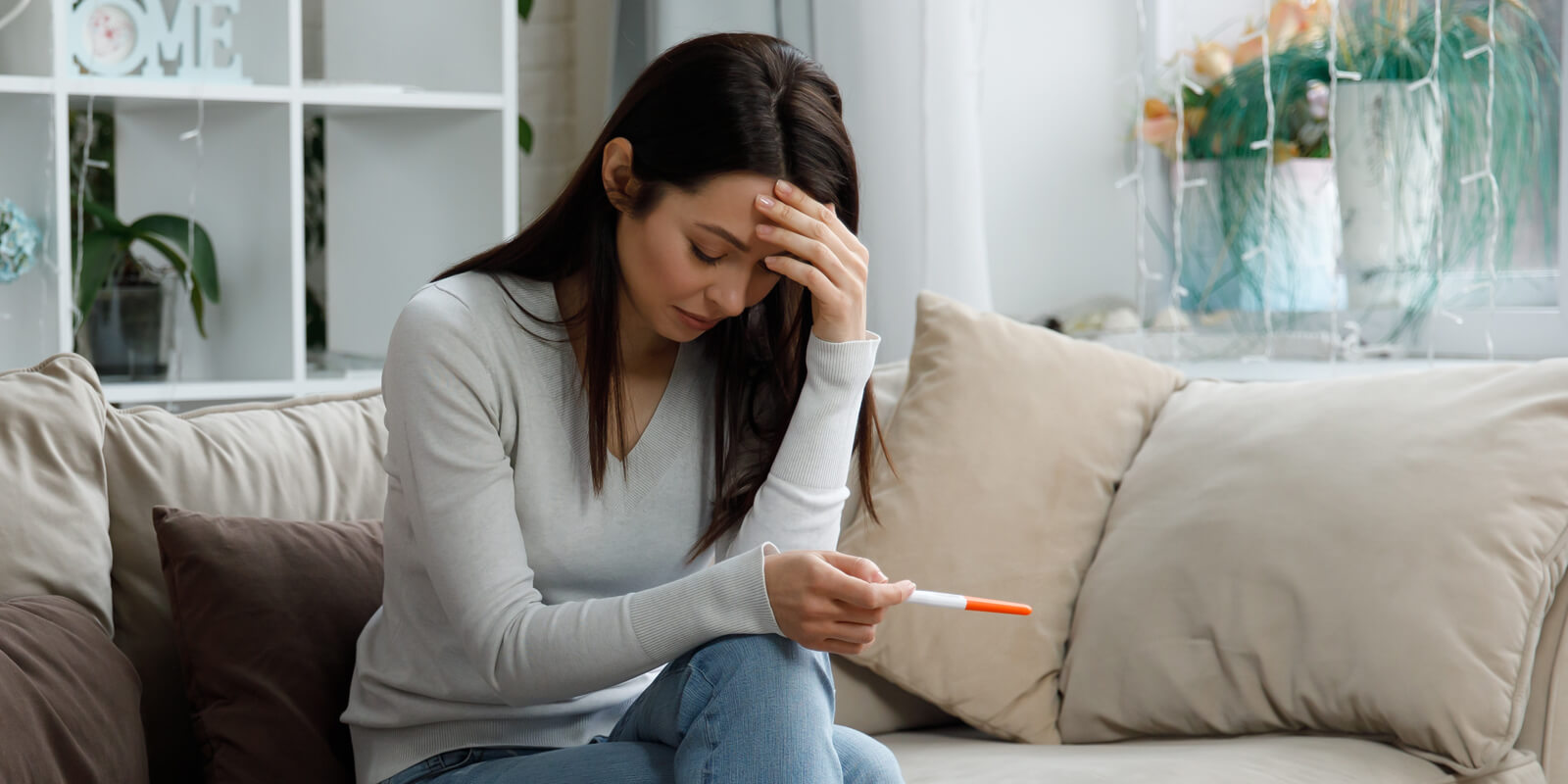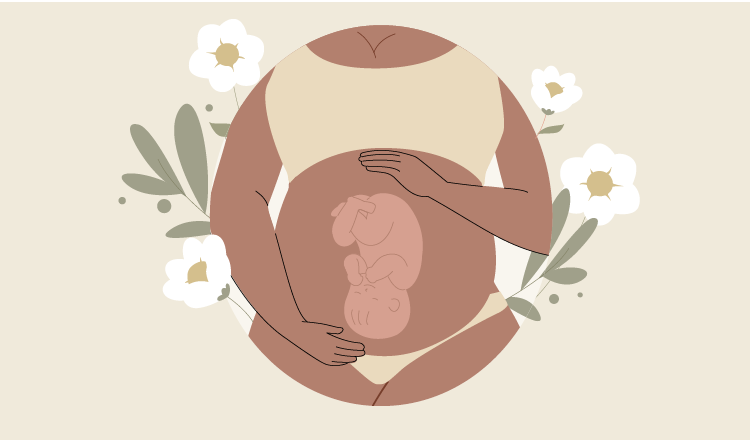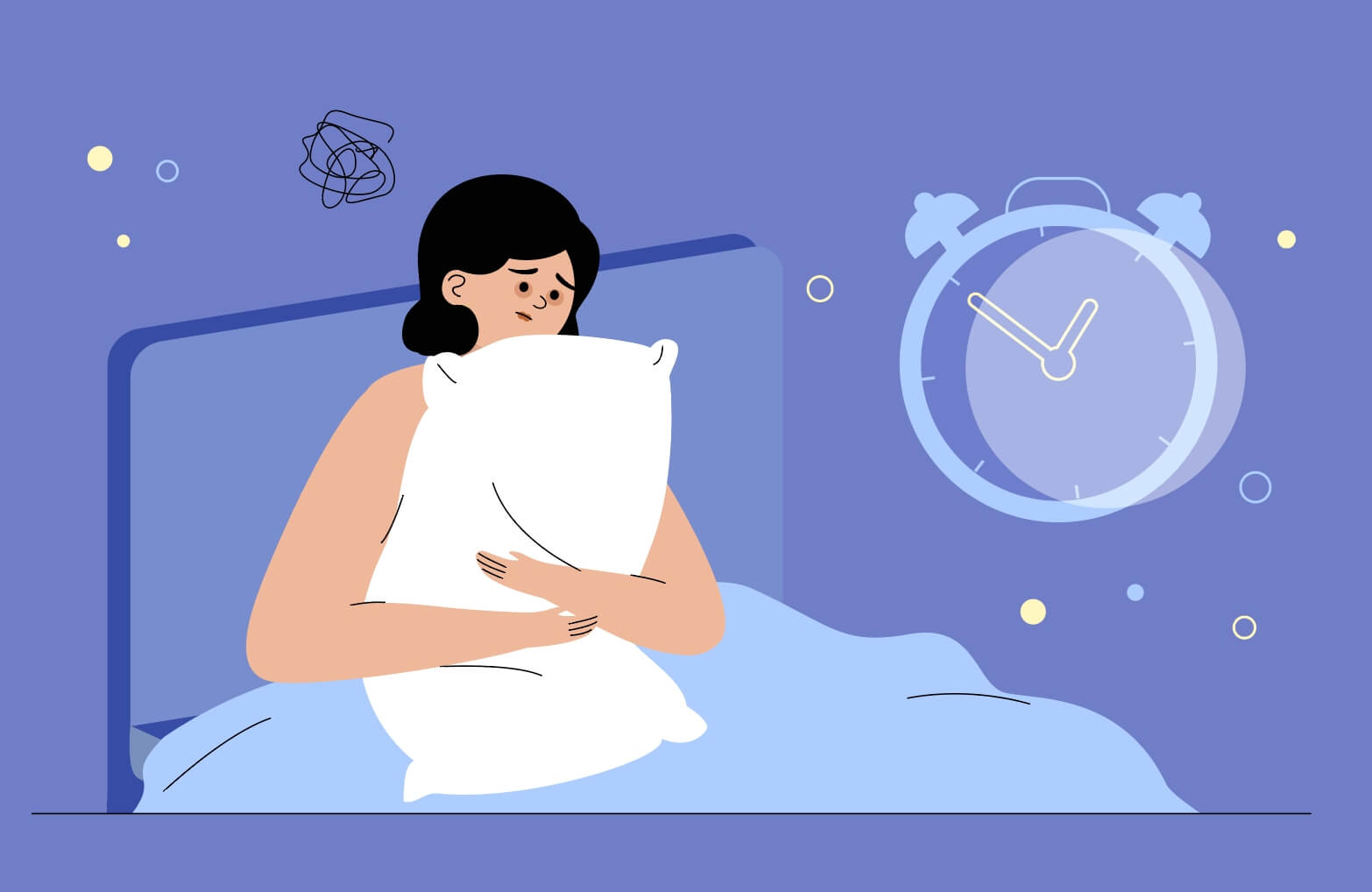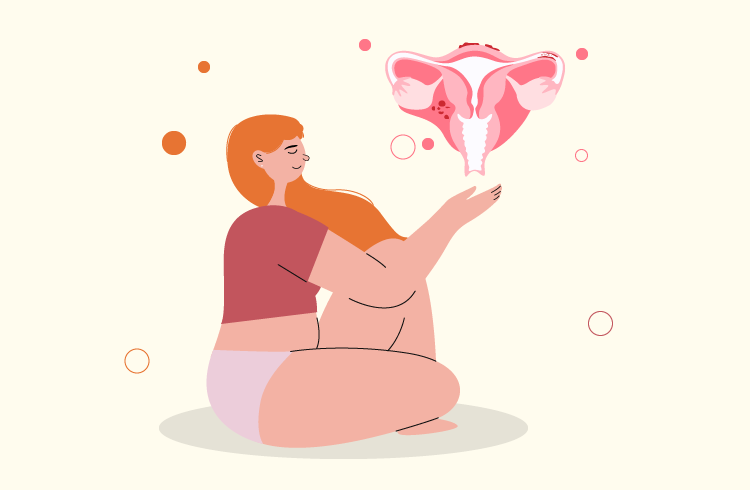Polycystic ovary syndrome (PCOS) is a common condition that affects how a woman's ovaries work. When a person has PCOS, many small cysts (small sacs of fluid) develop along the outer edge of the ovary. These small fluid-filled cysts contain immature eggs called follicles. The follicles fail to regularly release eggs, which means ovulation is irregular or doesn’t take place.
It can be harder for a person with PCOS to get pregnant because it’s harder to predict ovulation and have sex on the correct days to achieve pregnancy. However, it’s possible to get pregnant with PCOS by tacking ovulation cycle and treating hormonal imbalance.
What is PCOS and what causes it?
The exact cause of PCOS is actually unknown but it’s thought to be hereditary. PCOS is related to abnormal hormone levels in the body. Many women with PCOS are insulin resistant, which means they create higher levels of insulin. This contributes to the increased production and activity of hormones like testosterone. Insulin levels can also be affected if you’re overweight.
What are the symptoms of PCOS?
Symptoms of PCOS often start in the late teens or early 20s.
They can include:
- missing or irregular periods
- difficulty getting pregnant as a result of irregular ovulation or no ovulation
- excess hair on the face, chest, back or buttocks
- weight gain
- thinning hair and/or male pattern baldness
- oily skin or acne
How is PCOS diagnosed?
You can be diagnosed with PCOS if you have two of the following symptoms:
- missing or irregular periods
- A high level of hormones called androgens (which can cause excessive hair growth on
- the body and face, as well as acne and thinning of hair on the head)
- Polycystic ovaries confirmed by a scan
Why is it harder to get pregnant when you have PCOS?

Irregular cycles
To get pregnant, you need to have sex within your fertile window (the 6 days that can lead to pregnancy). When you have PCOS it’s harder to predict when your fertile window will be because ovulation can be irregular, and even non-existent.
Hormonal imbalances
Research has shown that the hormonal imbalances associated with PCOS can also change cervical mucus; it becomes more compact, dense, and impenetrable. This means that the cervical mucus can’t do its usual job of helping the sperm reach the egg.
Fewer high-quality eggs
Many women with PCOS have higher levels of testosterone, and this can lead to a lower quality of eggs. Lower-quality eggs are less like to result in a pregnancy, and can sometimes result in miscarriage.
Stress
When the adrenal glands are activated due to stress, they contribute to the increased levels of androgens (like testosterone) in the body. This means that high levels of stress can make your PCOS symptoms worse and make it harder to get pregnant.
How to get pregnant quicker when you have PCOS?

Track your Basal Body Temperature (BBT) and your Luteinizing Hormone (LH)
Getting pregnant with PCOS is only harder as it’s difficult to time sex correctly. By using the Vinca2.0 BBT thermometer and IVY112 Digital Ovulation test kit, you can still track symptoms and predict ovulation to achieve pregnancy.
1. Tracking your LH will help you to spot ovulation.
Just before you ovulate, your LH levels will spike. And although people with PCOS may see many spikes in LH before they actually ovulate, this is still an effective way to predict ovulation. Ivy112 digital ovulation test kit is more sensitive to LH changes than typical LH test strips. The device syncs directly to the Femometer app, plotting your LH levels on a graph to help you look for patterns as well as giving you insights and advice on when best to have sex.
2. Tracking your BBT will help to confirm ovulation
When you have PCOS, it’s important to confirm whether the LH peak has led to ovulation. You can do this by using the Vinca2.0 to track your BBT. Your BBT is the lowest temperature your body goes to overnight. Your BBT usually stays at a fairly consistent temperature until you ovulate, and then it increases slightly. This rise in temperature remains for roughly two weeks, then drops if you aren’t pregnant.
Use the Vinca.2.0 to easily measure your BBT each morning when you wake. The data is seamlessly synced to your Femometer app, and plotted onto your BBT curve. Here you will be able to see if ovulation has taken place, or whether you need to continue to measure LH.
Treat Hormonal Imbalances
Treating PCOS with vitamin-like substances called inositols (a type of sugar in the body) has shown promising results. Take Femometer’s Inositol vitamins to help control blood sugar, improve oocyte and embryo quality and increase chances of pregnancy.
Treatment with inositols has been shown to help improve insulin sensitivity and reduce male hormone levels in females with PCOS (which has been seen to help restore periods).
Vitamin D may also help you achieve pregnancy faster. According to some research, a deficiency in vitamin D has been linked with “ovulatory dysfunction,” which is the term given to abnormal, irregular, or absent ovulation.
Reduce stress and maintain a healthy lifestyle
Weight management is vital when it comes to easing PCOS, attaining a healthy BMI may also reduce symptoms, restore your period and make it easier to get pregnant
By increasing the number of lean proteins and fiber you consume, and ditching the sugar and high-calorie foods, you can help your body improve insulin response, and possibly even reduce the amount of male hormones being produced.
1. Things to include in your diet:
- Fruit with edible skins like apples, pears and strawberries as they have more fibre
- Organic meats as these have no added hormones
- Healthy proteins like peanut butter (no added sugar) or Greek yoghurt
- Freshly caught fish
- Nuts like pecan and macadamia as they have the right types of healthy fats
2. Reduces stress with exercise, meditation and making time for hobbies and self-care

Exercise reduces levels of the body's stress hormones, such as adrenaline and cortisol. It also stimulates the production of endorphins, chemicals in the brain that are the body's natural painkillers and mood elevators.
Meditation, hobbies and self-care have all been shown to reduce stress hormones and decrease inflammation in the body. A number of studies have shown that mindfulness can help lower inflammation and stress hormones by around 15%.
Taking steps to reduce stress, and maintaining a healthy lifestyle, alongside tracking your LH and BBT to understand your ovulation signs, can help you to beat the symptoms of PCOS and can lead to pregnancy faster.
Get your partner checked
Remember that not all fertility problems are caused by the problems a women has. It is estimated that up to 7% of men are affected by infertility and 50% of fertility problems within a heterosexual couple are due to the man. Checks for male infertility are very important, especially if you've been trying to conceive for over 2 years.











